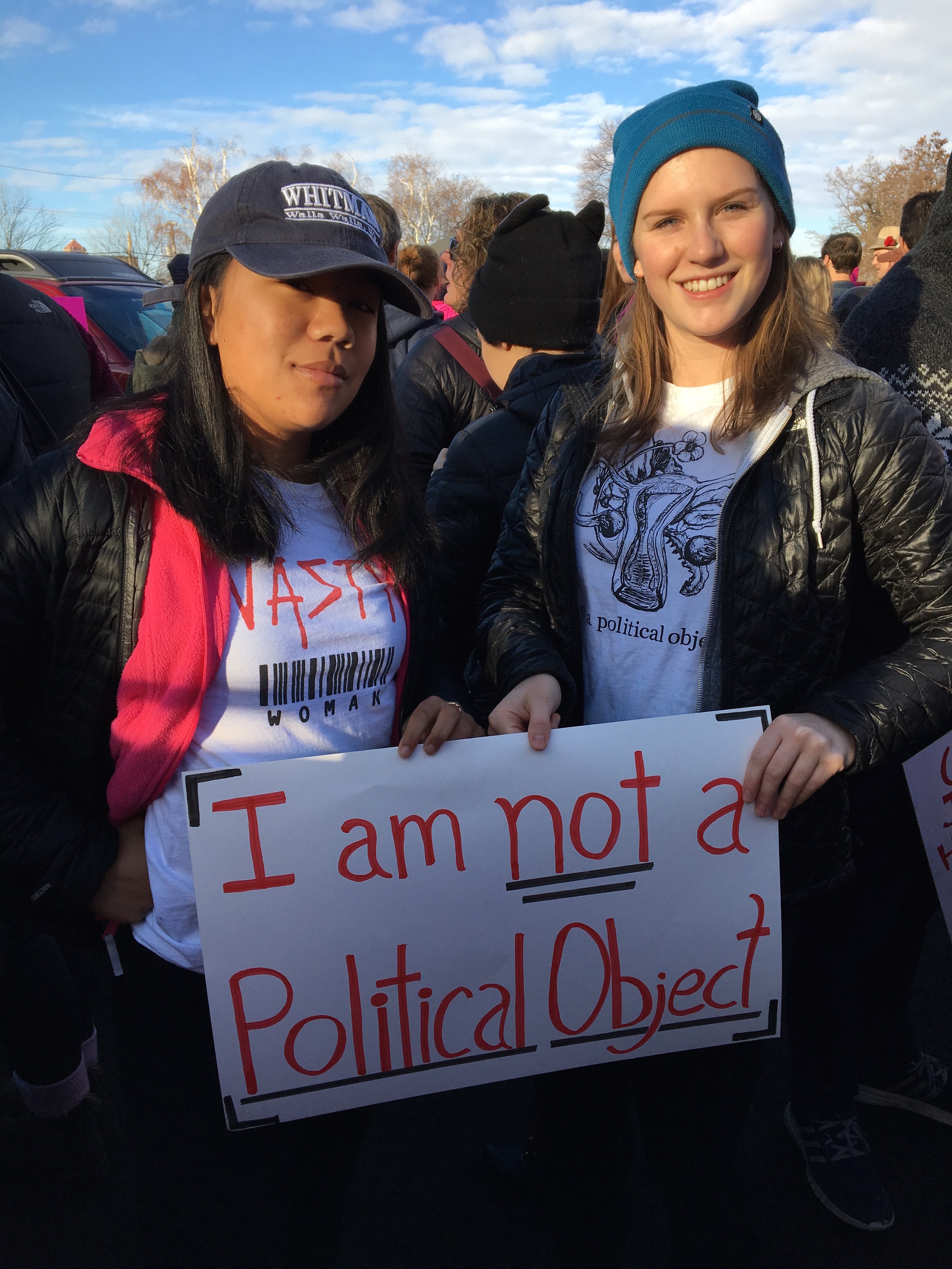Reflections on the Women's Marches
The purpose of this collection is to demonstrate the importance of showing up. The Women’s Marches across the country made a huge impact inauguration weekend––in fact, significantly more people marched than attended the inauguration. This post is meant to reiterate that the marches on inauguration weekend did not absolve us from further action but rather signify the middle and beginning of constant struggle.
However, in comparison to past protests against systemic oppression, the Women’s Marches were markedly white. The marches were considered peaceful and police officers in pink pussy hats were even seen posing for photos with marchers. This is because whiteness and white womanhood make police officers feel safe, not threatened. Seeing such a glaring disparity in the character of these demonstrations as opposed to Black Lives Matter protests, for example, causes us to reflect more deeply on the privilege that defined last weekend as “peaceful”.
Another condition for comment was the profound numbers that attended these marches across the country. And while a “Women’s March” might seem the most obviously feminist protest, we can often forget that police brutality, transphobia, worker’s rights, the construction of the Dakota Access Pipeline, prison abolition, and other fights are also inherently feminist. As mentioned earlier, many march attendees were privileged women. We need to see white, cisgender women, in particular, show up to other marches too. This is precisely the need for intersectional feminism.
Obviously not all protesters were white cis women. However, the overall makeup of the crowd determined the safety of the march. We saw that police officers showed up in pussy hats instead of riot gear, for example. This is exactly the purpose of an ally. White protesters, in general, are much less likely to be harassed by cops during a demonstration. It is the responsibility of all white feminists to protect their sisters in other marches by participating. Showing up to feminist marches that do not explicitly apply to your own identity is what it means to practice intersectional feminism.
SHOW UP! Not just for your white cisters but for all people oppressed under the same white/(orange) supremacist patriarchy that benefits from our being divided.
Intersectionality is something we can work on every day.
ALEX
***
WELCOME TO THE GALLERY! Some contributors from the Uterish community submitted their own reflections from the marches. Click on the photos to see what people said and where they marched.
































